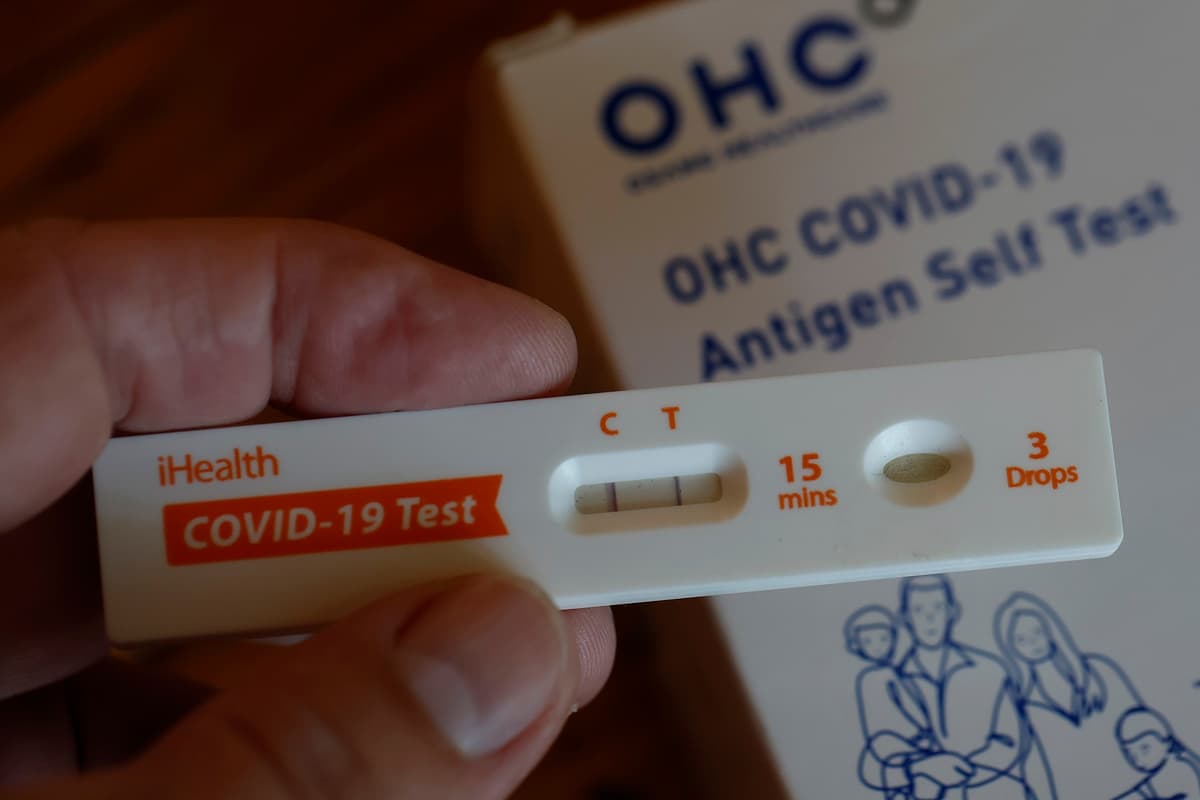By Sarah McCann
Copyright glasgowworld

Stratus is the latest Covid strain to be on the rise.The Covid strain is now ‘under monitoring’ by the World Health Organisation. Those who are eligible for the Covid vaccine will be able to access a jab from October 1.
A new Covid strain has taken off across the UK, now becoming the most dominant strain.
XFG, known as Stratus, now accounts for nearly 40% of Covid cases, the latest data from the UK Health and Security Agency (UKHSA) revealed.
The latest Covid strain is “under monitoring” by the World Health Organisation (WHO), after several countries in South East Asia reported a rise in new cases and hospitalisations where the new variant has been detected.
Whilst Covid cases have remained stable, the threat hasn’t gone away. With the emergence of the new variant, it’s even more important than ever to be aware of the signs and symptoms of Covid and who is eligible for the Covid vaccine this autumn.
Dr Amanda Doyle, National Director for Primary Care and Community Services at NHS England, said: “The threat from getting seriously ill from flu and COVID-19 is all too real and each year we see hundreds of thousands of people hospitalised due to these nasty viruses – especially across the winter months.
“Vaccination is our best defence against these viruses and can be lifesaving – so I would urge mums-to-be, parents of young children and teens, and others who are eligible to come forward or book appointments for their jabs as soon as possible, to help protect themselves and loved ones.”
What is the new Covid strain?
The new Covid strain, Stratus, is a subvariant of Omicron. A Combination of previous variants LF.7 and LP.8.1.2, it was first detected in a sample on January 27, 2025.
Described as a “variant under monitoring” by the World Health Organisation (WHO), it has two variants, XFG and XFG.3, with the latest data from UKHSA revealing XFG now accounts for 38.33% of all Covid cases recorded between August 4 and August 17, making it the most dominant strain.
Join NationalWorld Today – daily headlines delivered to your email.
What are the symptoms of Covid?
Despite the different Covid strains, the symptoms have largely remained the same. They include a new continuous cough, high temperature, loss or change of taste or sense of smell, a sore throat, headache, fatigue and nausea.
However, for Stratus, there is reportedly one tell-tale symptom, with sufferers initially experiencing a hoarse or raspy voice before traditional Covid symptoms appear.
Who can get the Covid vaccine?
The criteria for who can get the Covid vaccine this autumn have changed. It is now eligible to adults aged 75 and over, older adult care home residents, and immunosuppressed people aged six months and over.
This is different from the autumn 2024 programme, which also included adults aged 65 to 74 and all those aged six months and over in a clinical risk group.
Those who are eligible due to being considered immunosuppressed must meet the criteria for who is defined as immunosuppressed, as outlined in Chapter 14a of the Green Book.
Some of the eligible groups include:
Organ, bone marrow or stem cell transplant patients Those being treated with systemic steroids for more than a month Those living with HIV Those receiving immunosuppressive or immunomodulating biological therapy, including children who are about to receive therapy Those undergoing chemotherapy or radiotherapy Those requiring long-term treatment for immunosuppression Those with a history of haematological malignancy, including chronic leukaemia, lymphomas, and leukaemia Those with genetic disorders affecting the immune system
When can you get a Covid vaccine?
If you meet the criteria for the Covid vaccine, you can now book an appointment on the NHS website in England, the NHS Inform in Scotland, and at HSC in Northern Ireland. You can also book your jab through your local GP surgery or your local pharmacy.
The Covid vaccination programme will run from October 1 until January 31, 2026.
You can find out more information about the symptoms of Covid and who is eligible for the Covid vaccine at NHS.UK.



